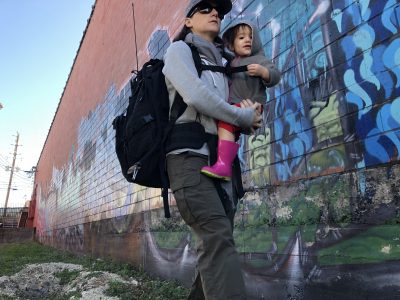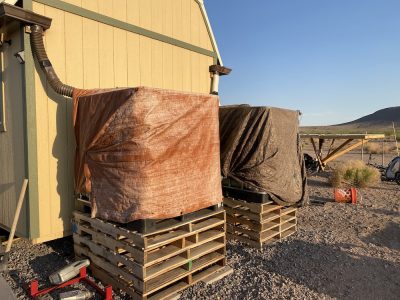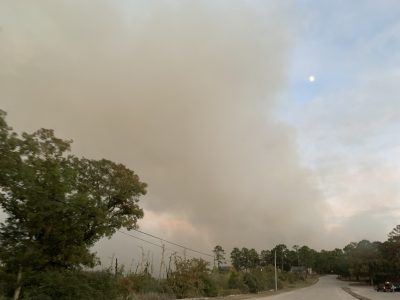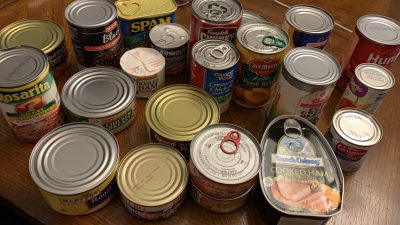5 Real World Disasters to be Prepared For
Morgan Rogue 02.21.22

Outside of being prepared for the zombie apocalypse, there are very real disasters to be prepared for in our everyday lives.

It’s an unfortunate fact that we live in a world full of chaos. Not just man-made chaos, but mother nature sure doesn’t hold back. A lot of the most drastic chaos the majority of us will face is some type of natural disaster. Our planet continues to evolve and change and with that comes a change to our environment which we must endure because we certainly aren’t capable of stopping it.
Since there’s so much out of our control, we can focus on what we can control, which is being prepared to the best of our ability.
Here are the top 5 real-world disasters we should be prepared for:

Drought
Did you know that almost 55% of the US is currently experiencing severe drought since November 2021? Whether drought is seasonal or ongoing, any place that experiences drought will never fully recover and will continually experience seasons of drought. It’s absolutely essential to be prepared to store water and even limit water.
- Store as much purified water as possible, either in bottled water from the store or fill up food-grade safe containers.
- Start a rain catchment system, when it does rain, you’ll be able to collect and store it for later. (editor’s note: check local laws regarding this sort of thing, as in some areas this is a regulated activity)
- Eat foods that don’t take as much water to make, or use canned liquids.
- Conserve water usage. Take shorter showers, hand wash dishes. Turn the water off between brushing teeth and washing hands. Don’t flush the toilet as much. Don’t water your lawn. Water plants only as needed. All of these things add up a lot over time.
Earthquakes
There were over 10,000 Earthquakes in 2021. The majority of those were very low, where none of us would even notice. 86 of them were between 6.0-6.9 which definitely can be felt. There were 19 major Earthquakes that caused thousands in fatalities and property damage.
While there are certain areas of the world that are more susceptible to Earthquakes than others, practically anywhere could experience an Earthquake at any time. The Earthquake itself could actually be the least of your worries, the shock waves could bring on devastating tsunamis, floods, landslides and could generally affect the potency of drinking water and the flow of the supply chain.
Earthquakes are practically impossible to predict, but we can be prepared for them.
- Keep furniture secured to the walls.
- Consider using grabber catch latches for drawers and cabinets to keep them closed during an Earthquake.
- If you have items on open cabinets, try to secure them in boxes or bars in front of them.
- Know the safe spot in your home such as under a table and away from windows and walls. Cover your head and hold on.
- Practice Earthquake drills regularly and make sure the whole household knows what to do.
- If you need to evacuate due to home or property damage, have a plan in place already to know where you’ll go, have your bags packed and important documents already together and ready to go.
- Keep an ax on hand. Keep a fire extinguisher. A whistle or flashlight in case you get stuck. Fire aid kit in case you get hurt.
Floods
Floods can impact crops, homes, and much more. Flooding can be caused by heavy rain, hurricanes, melting snow or dams breaking. Flash flooding is even more dangerous because there’s little to no warning that it’ll happen. Flash flooding happens when there’s more water than the soil can absorb thus overwhelming storm drains, ditches, rivers, etc., and the water levels can rise rapidly.
A flood watch means a flood or flash flood is possible.
A flood warning means flooding is currently happening and it’s time to either stay put or get to shelter immediately.
- Have a NOAA weather radio and listen for watches and warnings
- Find out if you’re located in a flood plain and if you’re near any streams, creeks, or rivers that could potentially rise with heavy rains.
- Have a plan for pets, whether they need to be moved or taken indoors.
- If you feel your home is going to be in danger of the rising water, have an evacuation plan, packed evacuation kit, and leave long before floodwaters get too high, at which point you may be trapped in your home.
- Never drink or try to purify flood water.

Wildfires
We see devastating wildfires every single year and they seem to only get worse. In 2021 there were over 58,000 wildfires. Wildfires are unpredictable, especially if there’s high wind.
- Know what type of insurance you have and if it’ll cover fire damage.
- Harden your home and property against wildfire damage by digging a trench around your home, keeping it clean of debris, watering the edge of your property if you hear a wildfire in the area, change out your siding for fire-resistant materials.
- Keep eyes and ears out for notices of wildfires in the area. If you suspect the fire is approaching your area, don’t wait to be told to evacuate; trust your gut and evacuate if you feel you need to.
- Have an evacuation bag packed along with your important documents. Know where you’re going to evacuate to; friends, family, hotel, campsite, etc.
- Stay indoors as wildfire smoke can do damage to your lungs and health. Change your air filters more often. (Editor’s note: have high quality portable air filters on hand to make super-filtrated areas within your home, especially where you sleep.)
Economic
Inflation has risen to 7.5% as of January 2022. This is the highest it’s been since 1982 and doesn’t seem to be slowing any time soon.
We can’t control inflation, but we can control how prepared we are.
- Stock up on food, water, and other wants and needs each time you hit the grocery store.
- Invest in hard assets such as generators, RVs, tools, land, and whatever else could be an investment.
- Look into local farms, neighbors, community gardens, and so on for local products like milk, eggs, seeds, services, potential trade, and barter, etc.
- Work on lowering debt.
- Learn to live with less, grow a garden and learn new skills and invest in yourself and your community.

By staying prepared to the best of our ability, we can stay in control for when the out-of-control happens.

